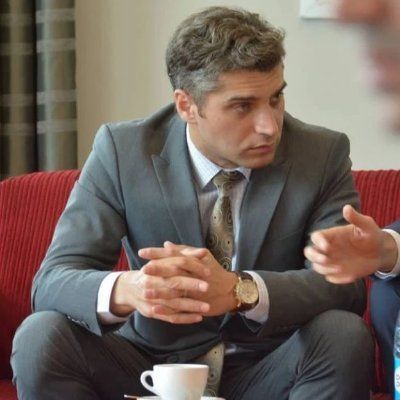Illusion of mediation in world of power games: lessons from Garabagh and Kashmir [ANALYSIS]
![Illusion of mediation in world of power games: lessons from Garabagh and Kashmir [ANALYSIS]](https://www.azernews.az/media/2025/05/12/add_a_subheading_1.png)
Is a third party always necessary to resolve a conflict? It’s a question that repeatedly haunts the corridors of smaller states, especially those caught in the undertow of recurring crises. From Africa to Asia, and across the Global South, developing nations have often found themselves stalled in their tracks—unable to identify the real obstacles to their progress. In such uncertainty, third-party "mediators" have emerged like self-appointed lifeguards, though more often than not, they have stirred the waters rather than calmed them.
But what if the core premise is flawed? What if there truly is no such thing as an unsolvable problem—and that solutions, in their rawest and most honest form, can only emerge from direct dialogue between the disputing parties themselves?
Take the Azerbaijan-Armenia conflict or the ever-smoldering tensions between Pakistan and India. In both cases, the fault lines trace territorial claims, but foreign interference has long redrawn and distorted those lines. Like puppet strings attached to sovereign wrists, the motives and movements of regional actors are often manipulated from afar.
The Kashmir dispute, for example, is not just a product of rivalry but a deep-rooted vine growing from the imperial cracks left by the British Empire. Since 1947, it has slithered through generations, wrapping around nationalism, identity, and ideology like ivy around an old stone fortress. The subcontinent, once united by common ancestry, was sliced into mistrust. And in that rift, new demons were born: religious extremism, racial division, and the politicization of faith. Yet while communal tensions flared, global powers looked on like spectators at a gladiator arena—entertained, perhaps even invested.
Is religion the root cause of it all? Or is that just the tip of the iceberg—a visible pretext that masks deeper geopolitical ambitions?
Indian Prime Minister Narendra Modi, whose government has leaned heavily into anti-Muslim rhetoric, certainly plays the part of a hardened ideologue. The marginalization of Muslims in India—and especially in Jammu and Kashmir—is a policy pillar too blatant to ignore. Yet if this were purely a religious crusade, then why was Muslim-majority Bangladesh, once East Pakistan, spared the same fury? The real answer, perhaps, lies not in holy books but in maps, minerals, and the mechanics of power.
Kashmir, with its mountains and minerals, is a jewel not of faith, but of strategy. India’s interest lies not only in territorial integrity but in economic leverage—and in projecting dominance across the Asian landscape. As India grows into a regional juggernaut, it mirrors the ambitions of another nation: Armenia. A different geography, a similar script. Both position themselves as democratic outposts in volatile neighborhoods. Both serve the interests of faraway allies.
It is no coincidence that Armenia and India, though distant, are increasingly tied through defense cooperation. When Pakistan extended military and diplomatic support to Azerbaijan during the 2020 Nagorno-Karabakh war, India responded—not with words, but weapons. Joint drills, arms sales, and mutual rhetoric have turned Delhi and Yerevan into echo chambers of each other’s foreign policy. France, eager to reassert its influence, now supplies Rafale fighter jets to India while simultaneously arming Armenia. And thus, a tangled web is spun—one where conflict feeds commerce, and alliances are brokered not in peace talks, but in arms deals.
What becomes clear is this: true resolution is not only possible without foreign mediators—it is often only possible because they are absent. For thirty years, Armenia clung to nationalist myths and revanchist dreams, but these narratives were upheld by stronger hands—hands that profited from a prolonged war. Ideology may spark a conflict, but it is the global war economy that keeps the fire burning.
Whether in Asia, Africa, or the Caucasus, these regions remain stages upon which great powers rehearse their ambitions. And the local actors? Often just props, reciting lines written elsewhere.
Azerbaijan’s reclaiming of its territory after decades of occupation marked more than a military success—it was a tectonic shift in a region long trapped by proxy agendas. It was a reminder that regional peace is not the byproduct of global favor, but of local resolve.
Of course, not everyone is pleased. Power structures rarely applaud when the game is taken off their board. But progress must not be held hostage to the satisfaction of every stakeholder. What matters is truth, not applause.
One day, the nations still tethered to old conflicts will awaken to the realization that what they believed were religious or ethnic wars were, in fact, staged performances—designed, directed, and amplified by those who gain the most from perpetual unrest. When that day comes, the myth of difference will dissolve, and what will remain is the simple truth: peace begins where manipulation ends.
Here we are to serve you with news right now. It does not cost much, but worth your attention.
Choose to support open, independent, quality journalism and subscribe on a monthly basis.
By subscribing to our online newspaper, you can have full digital access to all news, analysis, and much more.
You can also follow AzerNEWS on Twitter @AzerNewsAz or Facebook @AzerNewsNewspaper
Thank you!

